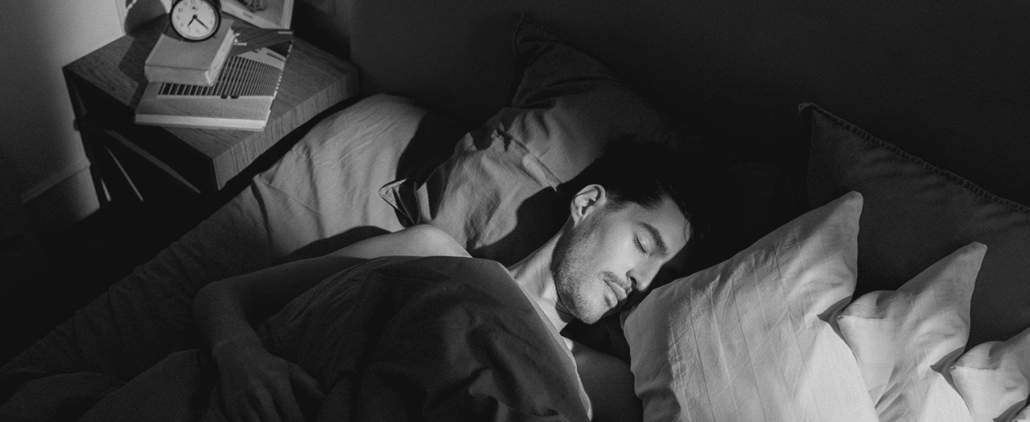Can't fall asleep?
When we’re depressed, falling asleep can be pretty hard. Try some of the tips below, figure out what works for you, and stick with it.
Don’t lie around waiting to fall asleep
Lying in bed thinking about not being able to sleep only creates stress for us. If you’re not able to fall asleep after 15 minutes, you can try getting up and doing something quiet and relaxing instead, such as reading (if you need some light to see, try to keep it dim). Once you’re feeling tired again you can try going back to sleep.
Don’t take your worries to bed
Bed-time is not a good time to plan, solve problems, or anything else that requires mental energy. Before going to bed, make a to-do list for the next day and set it aside. The list will be there in the morning and you can work on it with a fresh mind after getting some rest.
Relax
When we’re agitated or keyed up for some reason before we go to bed, it’s going to be hard to fall asleep. We can try some relaxation techniques like deep breathing to lower our heart rates and calm our bodies down. Learn more stress management techniques.
Limit bright lights
Bright lights can mess with our circadian rhythms (sleep-wake cycles).[2] If you get up in the night and need help seeing, try using dim lights to find your way. They won’t disrupt your sleep cycle as much.
Avoid caffeine and nicotine
Caffeine and nicotine are stimulants and keep us wired long after ingestion. This can make it tough to get to sleep.[3] So if you drink coffee (or tea), smoke, or do both, try to limit your intake to the earlier part of the day, so their effects don’t last late into the night. For some guys, any amount of caffeine or nicotine can get in the way of a good night’s rest.
Keep waking up?
Waking up during the night is a common problem when depressed and can be very frustrating. Thankfully, there are some things we can try to limit how often we wake up and make it easier to fall back asleep.
It’s worthwhile to point out that, in many ways, the things we should do to fall asleep (see above) can also help us stay asleep. It’s also important to keep in mind that as people get older, they tend to wake up more often during the night.[4] So, just because we’re waking up at night doesn’t necessarily mean we have some underlying problem that’s causing it.
Avoid afternoon naps
If you struggle to stay asleep, you should try to avoid taking naps during the day so that you’ll be more tired when night comes around. But — and this is a big “but” — if you need to do something where your or others’ safety will be in danger if you don’t nap (like driving home after work, for instance) take a snooze for no more than 30 minutes. Any longer than that, and we’ll enter deep sleep, which can affect our night time shuteye.
Limit alcohol consumption
Many guys think having some beers or drinks can help us sleep, but in reality alcohol wreaks havoc on our sleep cycle.[5] We might be able to fall asleep faster, but because alcohol interferes with our sleep cycle, we’ll end up waking during the night. Our bodies won’t be able to restore and relax properly.
Limit all drinks before sleep
A full bladder makes restful sleep very difficult. If getting up to go to the washroom is a problem, you can try limiting how much liquid you drink before bed. For some guys, drinking anything within an hour or two of bed will always send them to the bathroom in the middle of the night. Make sure to have a glass of water first thing in the morning so you don’t start off the day dehydrated.
Avoid your phone or tablet
Don’t turn on any electronics, because the blue-spectrum light emitted from these is known to impede sleep – meaning that it will be even harder to get back to sleep.[6]
Can't get out of bed?
As simple as it might sound, getting out of bed can feel like an impossible task when caught in the grips of depression. But laying around in bed isn’t the best strategy for fighting depression. Here are a few tips – things to keep in mind – that will help us rise up, get out of bed, and move on with our days.
Start with the simplest step
When we’re depressed, it can feel like we don’t have enough energy to even get out of bed. In this case, we can think of the simplest thing we have to do that day. Maybe this is getting up and having a glass of water or juice. Maybe it’s brushing our teeth. We may not think so while lying in bed, but once we’re up we’ll have more energy.
Recognize how hard this is
When we manage to get ourselves up and going, take a second to recognize that this is actually a really difficult thing to do when depressed. Whatever we’re going to do that day, we’ve already got ‘getting out of bed’ done and crossed off the list. We can use this momentum to carry us on to our next small task.
Don’t use sleep to escape or avoid life
Sometimes we want to stay in bed, pull the covers over our heads, and forget everything we’re feeling or worrying about. This is totally normal when we’re depressed because it can feel like everything is working against us. But staying in bed isn’t a solution – it doesn’t make problems or responsibilities disappear. Instead, it leads to poorer quality sleep and feeling worse. Think of getting out of bed as one small way to fight back against depression.


